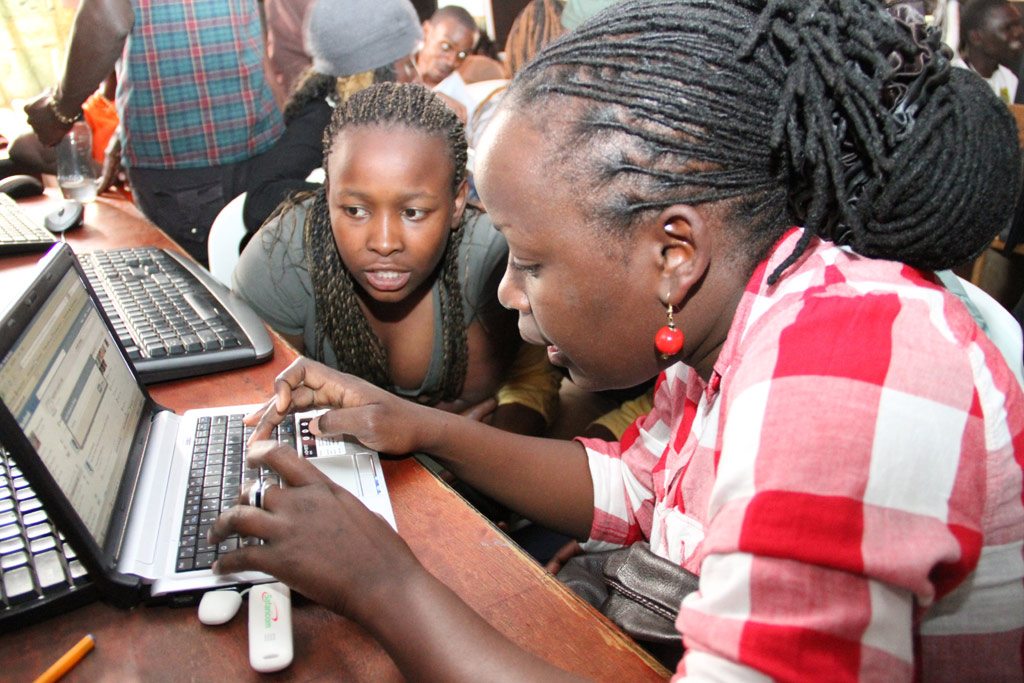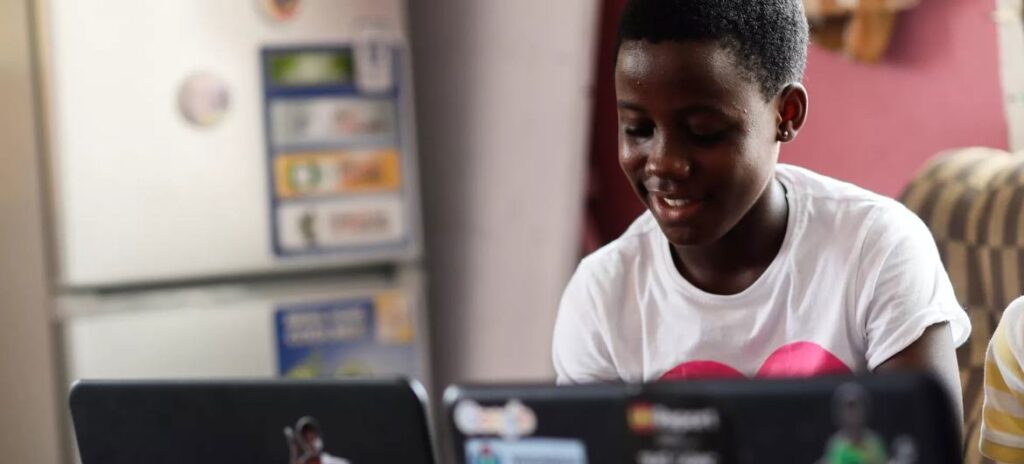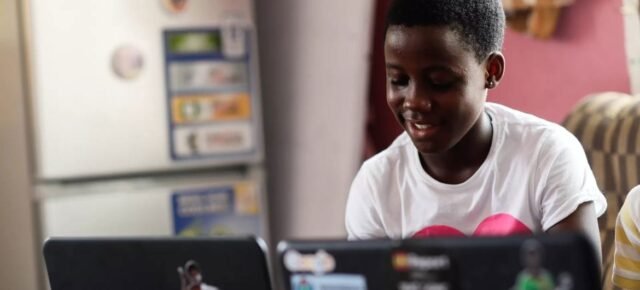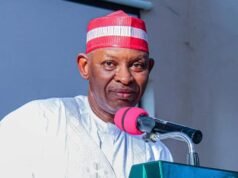Amina Mohammed, United Nations Deputy Secretary‑General, recently delivered a striking reminder: Africa’s future hinges on prioritising its young people. In a powerful appeal, she urged leaders, communities, and investors to “bet on her youth” as the single most compelling route to unlock the continent’s digital promise.
This call-to-action isn’t just rhetoric—it’s a strategic pivot. With over 60% of Africa’s population under the age of 25, Ms. Mohammed sees immense opportunity. Today, the continent stands at a crossroads: embrace digital transformation powered by young innovators, or risk falling behind in a global landscape defined by technology.
Table of Contents

A Demographic Dividend Waiting to Be Tapped
Africa is home to the world’s youngest population. As Ms. Mohammed points out, this youth bulge represents a dynamic workforce, ready to fuel economic growth—if given the right tools. But currently, many lack access to education, infrastructure, and digital platforms needed to thrive.
Worldwide, digital industries boast higher productivity, better wages, and increased competitiveness. For Africa, the challenge is turning untapped potential into tangible outcomes. Whether it’s coding, digital entrepreneurship, or app development, young Africans must be empowered to lead—and lead digitally.
Digital Inclusion: A Pathway to Equity
At the heart of Ms. Mohammed’s message lies a profound truth: digital access is not a luxury—it’s a necessity. Too many young Africans still live in digital deserts, devoid of reliable internet or affordable devices.
Bridging this gap means investing not just in technology but in the infrastructure that supports it. It means making sure every child in urban slum or rural village has a path to connectivity. Ghana’s free Wi‑Fi in public libraries, Kenya’s mobile money revolution, and Nigeria’s digital education hubs offer inspiring examples—but they remain fragmented.
Strategic investment in connectivity will be transformative—and those investments should centre on the continent’s youth. By giving them a seat at the table, we not only tackle inequality but kickstart innovation at scale.
Skills for the Digital Economy
Connectivity alone isn’t enough. Young people also need education and training to thrive in the digital age. Ms. Mohammed emphasises the importance of digital literacy, programming skills, and digital entrepreneurship as essential arming tools in a competitive global economy.
This is where public-private partnerships play a pivotal role. Tech companies, governments, and NGOs need to collaborate on initiatives ranging from coding bootcamps to university programs—and even remote learning platforms. When youth take centre stage, these programs become more effective, more inclusive, and more agile.
Harnessing Youth Creativity and Innovation
One of the most inspiring aspects of Africa’s youth population is their creativity. From Lagos to Nairobi, innovators are building everything—from fintech apps to agritech solutions tackling food security. Betting on youth means nurturing this creativity with mentorship, funding, and ecosystems that support incubation and scaling.
Here, Ms. Mohammed envisions a future amplifying young founders with seed funding, accelerator programs, and policy-backed start‑up hubs. Imagine every university collaborating with local incubators or every city hosting hackathons. This is more than economic development—it’s a culture shift toward youth-led digital innovation.
Building Trust and Governance in Digital Spaces
Alongside innovation, Africa must navigate the complex terrain of data rights, privacy, cybersecurity, and regulation. As more life moves online, building digital trust becomes paramount. Youth need to understand their rights—and governments need to enact fair policies.
Ms. Mohammed advocates for governance frameworks that protect citizens while enabling innovation. Her ultimate vision is a continent where digital ecosystems are not only fast but also secure, trusted, and rights-respecting.

UN’s Digital Compact and Global Support
The United Nations’ Global Digital Compact—part of the 2024 Pact for the Future—sets a framework for international digital cooperation. While the Compact encompasses AI ethics, digital rights, and infrastructure, Ms. Mohammed stresses the importance of embedding youth empowerment as a core pillar.
By encouraging governments to craft youth-centred digital strategies, the UN is signalling that Africa’s youthful energy is its greatest resource. This approach does more than support startups—it fosters a sustainable generation of digital citizens reshaping societies.
Stories from the Ground
The rhetoric is compelling—but the real test lies on the ground. In Nigeria, coding academies in Lagos have trained thousands of youths and launched local tech ventures. In Rwanda, national programs offer free digital literacy to young citizens in both towns and villages.
These stories embody what Ms. Mohammed envisions: youth taking ownership, creating solutions, and meeting challenges head‑on. They prove that when opportunity meets ambition, the digital future doesn’t just belong to them—it’s being built by them.
Roadblocks to Overcome
Turning vision into impact isn’t without its hurdles:
- Infrastructure Deficit – Many regions still lack power and broadband access. Infrastructure projects require both investment and political will.
- Funding Gaps – African youth entrepreneurs struggle to access the capital needed to launch and scale digital businesses.
- Digital Literacy Divide – Formal education systems often lag behind the rapid pace of digital innovation.
- Policy Inertia – Without clear governance, digital ecosystems remain fragmented and unsafe.
To overcome these, Ms. Mohammed urges a coordinated push: national plans aligned with the Global Digital Compact, donor commitment, corporate investment, and civil society action.
Measuring Progress
How will we know if we’re succeeding? Indicators matter:
- Connectivity rates among youth-populated regions
- Digital literacy levels in school curricula
- Number of youth-led digital enterprises
- Investment volume in digital startups
- Policy and regulation benchmarks for digital safety
Collecting data—and acting on it—will be critical. The UN stands ready to help nations build measurement tools that track both disparity and progress.
A Call to All Stakeholders
Ms. Mohammed’s message reverberates beyond U.N. circles. It is a plea to:
- African governments: Prioritise youth in digital policies
- Donor countries & institutions: Direct resources into infrastructure, training, and innovation
- Private sector: Invest locally, mentor youth, and bridge gaps
- Civil Society & NGOs: Amplify youth voices and align programs with actual needs
For every city dweller dreaming of becoming a software engineer, every rural student eager to learn web development, and every young founder with a disruptive idea—this is their moment. But only if all stakeholders rise to the occasion.

Conclusion:
By urging Africa to “bet on her youth,” Deputy Secretary‑General Amina Mohammed isn’t offering a hope‑for‑the‑future slogan—she’s issuing a compelling, data-backed action plan. Africa’s digital revolution isn’t a distant dream; it’s unfolding in labs, classrooms, and startups across the continent today.
What’s needed now is scale. Not isolated success stories, but systemic change—where connectivity is reliable, education is inclusive, entrepreneurship thrives, and policies protect innovation. Then the youth won’t just benefit—they will lead, uplift, and shape Africa’s digital destiny.
This isn’t just good economics—it’s smart policy, equitable development, and a moral imperative. Betting on Africa’s youth means betting on the continent itself. And with digital tools in hand, that bet can—must—win.
Join Our Social Media Channels:
WhatsApp: NaijaEyes
Facebook: NaijaEyes
Twitter: NaijaEyes
Instagram: NaijaEyes
TikTok: NaijaEyes












![Tragic Incident: Fans of Seyi Vibez Die in Fatal Accident After Electrifying Lagos Concert [VIDEO] Seyi Vibez](https://naijaeyesblog.com/wp-content/uploads/2025/08/Seyi-Vibez-180x135.avif)



























